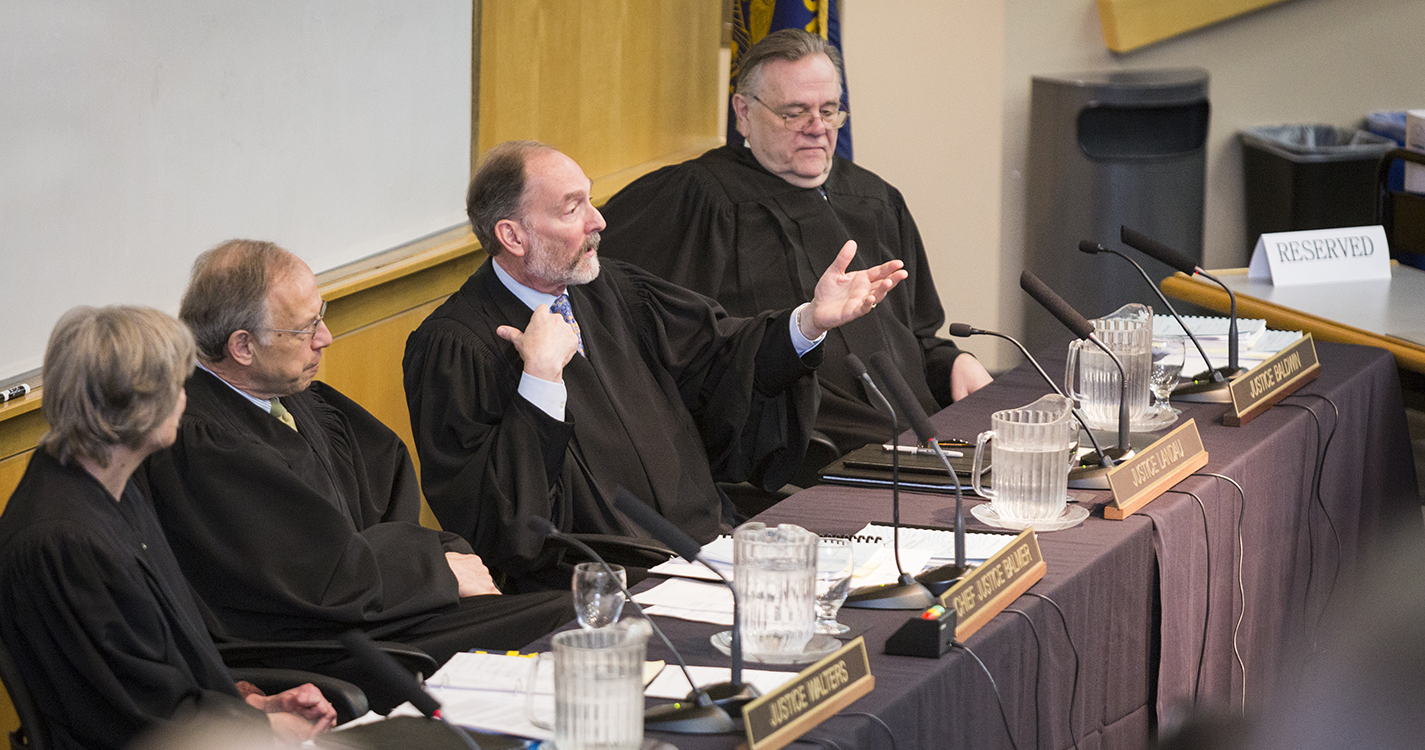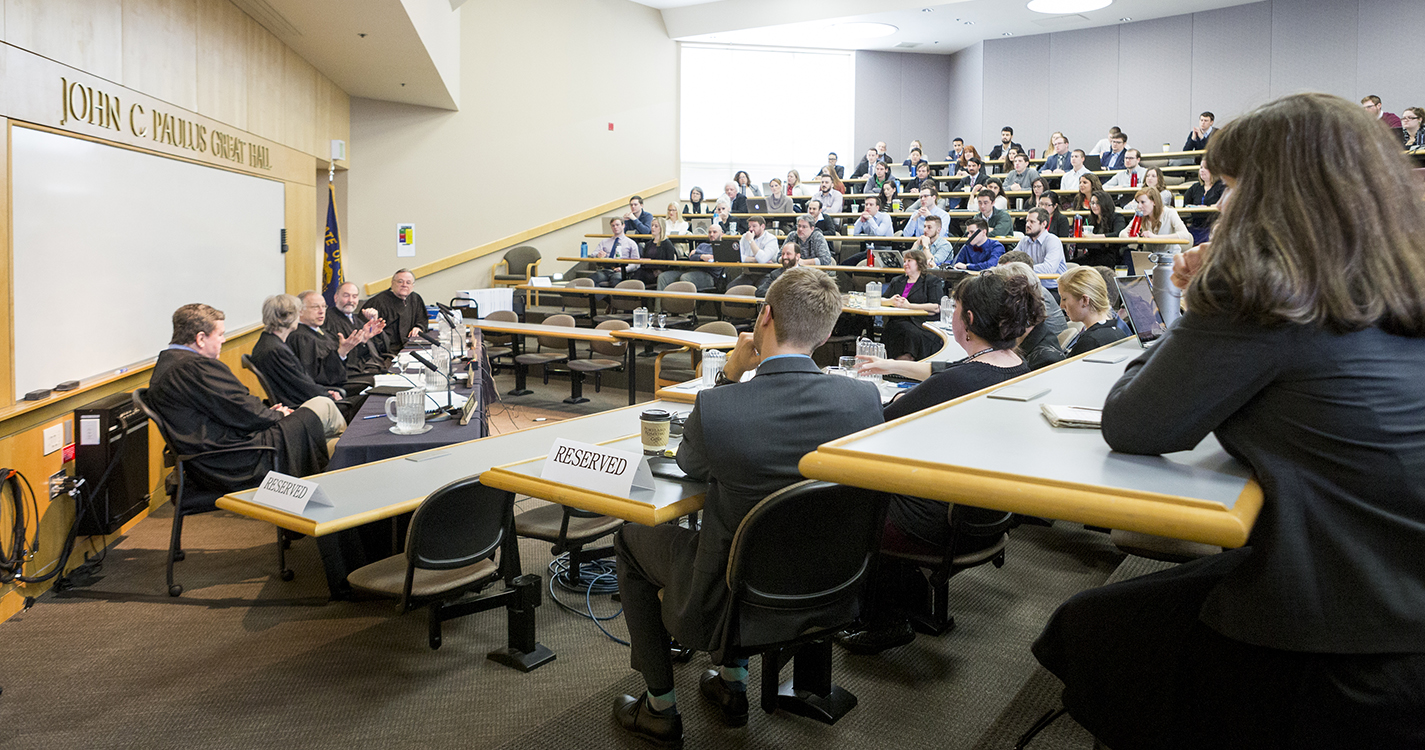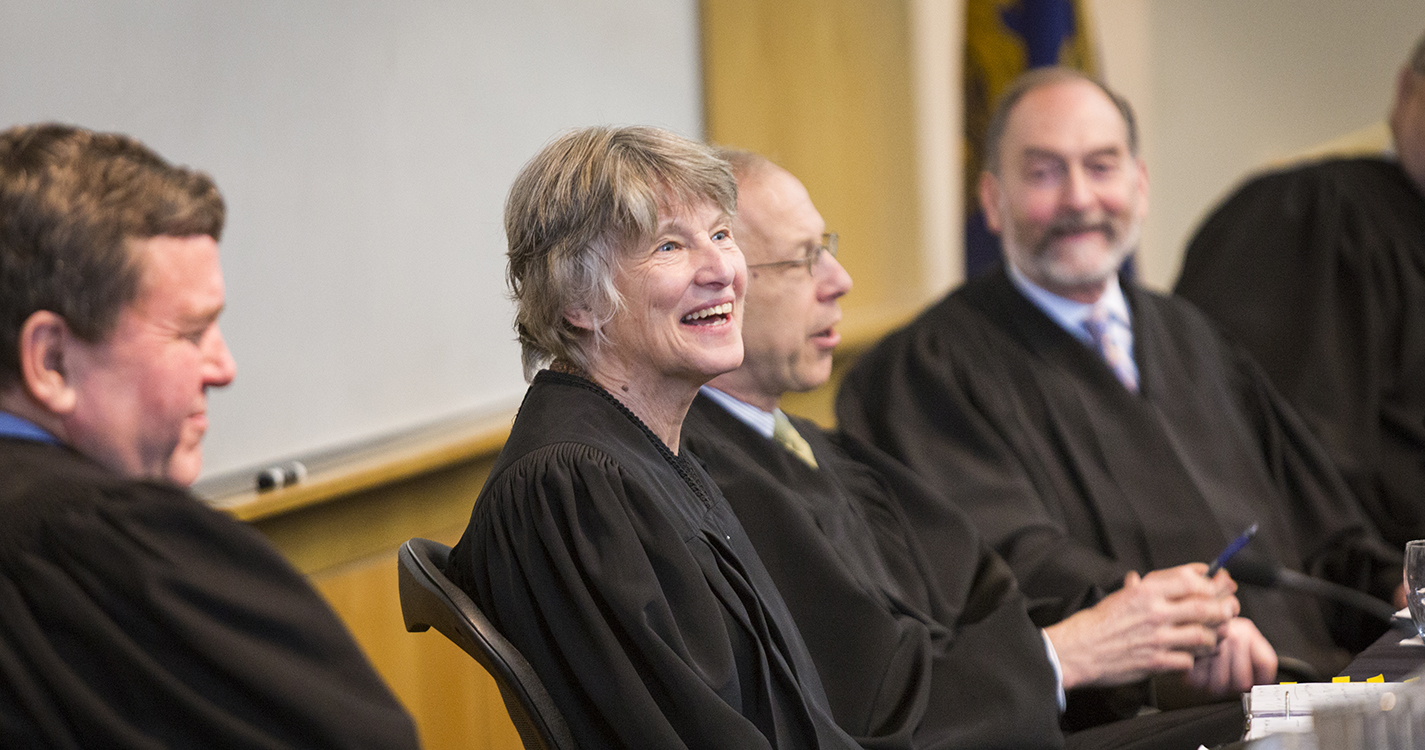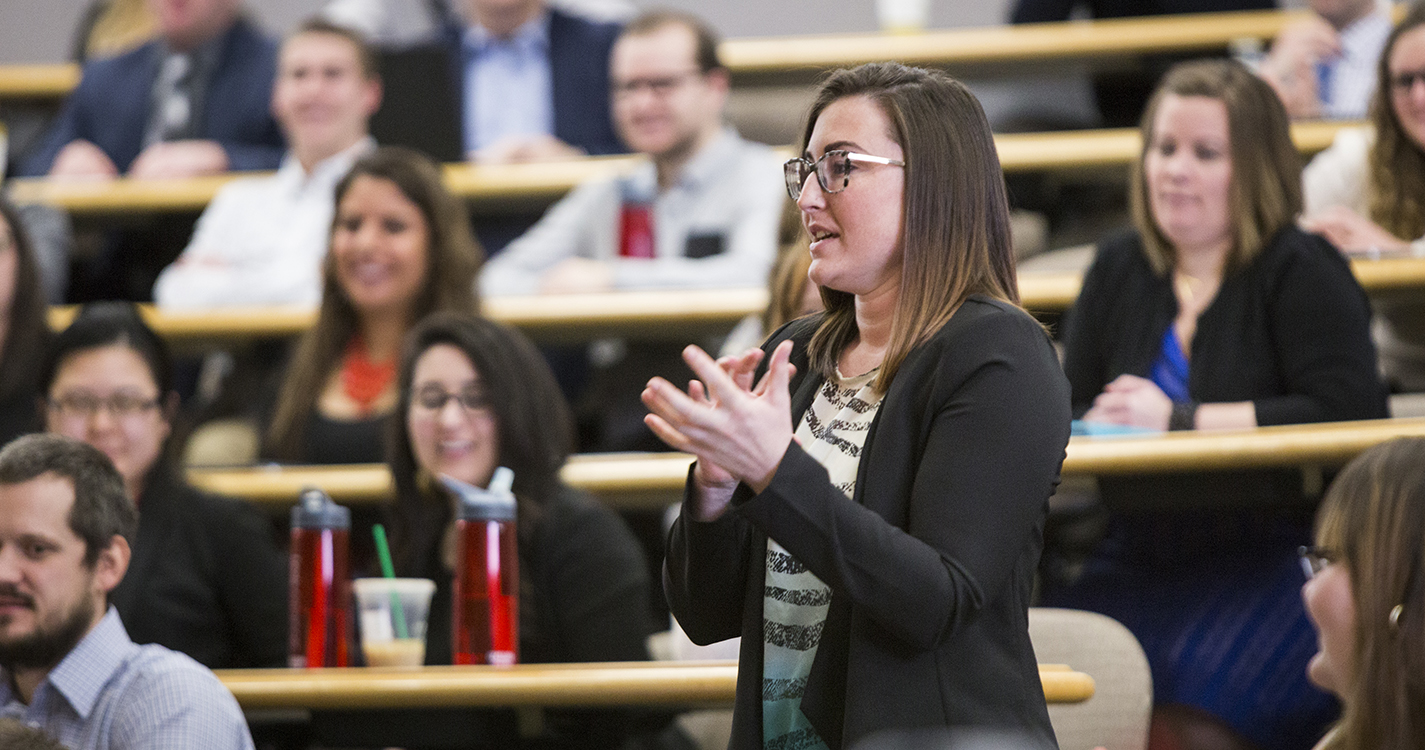One of the most memorable faux pas Oregon Supreme Court Justice Jack Landau has observed while on the bench happened when the presenting attorney’s phone rang — and he answered it. What seemed to be obvious court protocol wasn’t necessarily evident to that attorney. On campus Friday morning, Willamette Law students had the chance to learn those protocol dos and don’ts, ask questions, and watch two real cases argued before the court.
During their session, the court hears cases at the three Oregon law schools, giving students and the public an opportunity to connect with the judicial system. Attorneys representing Carvel Gordon Dillard v. Jeff Premo and Larisa’s Home Care, LLC v. Karen Nichols-Shields argued their cases for the court Friday. Justices Rives Kistler and Lynn Nakamoto were absent due to other obligations, but they will participate in the final case decisions.
In Carvel Gordon Dillard v. Jeff Premo, the court weighed whether the Court of Appeals had jurisdiction under ORS 138.525 over a petitioner’s appeal of the judgment dismissing his petition for post-conviction relief with prejudice, when the post-conviction court had entered the judgment without holding a hearing.
In Larisa’s Home Care, LLC v. Karen Nichols-Shields, the court reviewed if in a case where a person or their agent commits Medicaid fraud such that a health care facility does not receive payment of non-Medicaid rates, that facility would have a reasonable expectation of being paid non-Medicaid rates.
While the attorneys presented their arguments, the justices went back and forth with them, asking questions and challenging them to consider hypotheticals. The justices agreed that they are not trying to trap the attorneys.
“When we ask questions, it’s because we actually want to know what the answer is,” Landau said. “...That’s the point when we’re the most persuadable — when we ask questions.”
After about an hour, the cases were submitted. Final decisions will be released in six to seven months.
First-year law students are working on their first appellate briefs and were required to attend. Their questions following the cases ranged from what things to avoid doing in court to when the court considers overruling precedent to how the cases are decided following oral arguments.
The justices gave thoughtful answers and advice to the audience. As they filed out of the courtroom, they wished luck to those working on their appellate briefs.
About Willamette University College of Law
Opened in 1883, Willamette University College of Law is the first law school in the Pacific Northwest. The college has a long tradition at the forefront of legal education and is committed to the advancement of knowledge through excellent teaching, scholarship and mentorship. Leading faculty, thriving externship and clinical law programs, ample practical skills courses and a proactive career placement office prepare Willamette law students for today's legal job market. According to statistics compiled by the American Bar Association, Willamette ranks first in the Pacific Northwest for job placement for full-time, long-term, JD-preferred/JD-required jobs for the class of 2014 and first in Oregon for the classes of 2012, 2013, 2014, and 2015. Located across the street from the state capitol complex and the Oregon Supreme Court, the college specializes in law and government, law and business, and dispute resolution.




